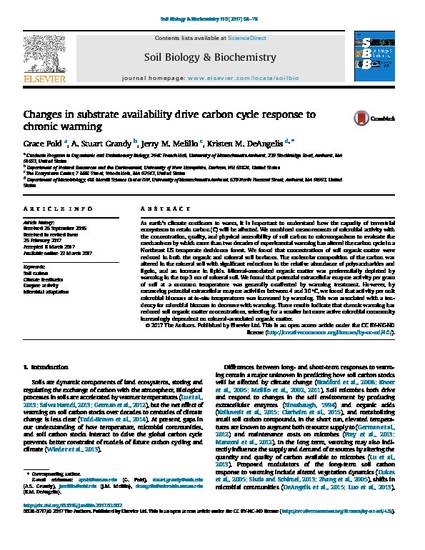
As earth's climate continues to warm, it is important to understand how the capacity of terrestrial ecosystems to retain carbon (C) will be affected. We combined measurements of microbial activity with the concentration, quality, and physical accessibility of soil carbon to microorganisms to evaluate the mechanisms by which more than two decades of experimental warming has altered the carbon cycle in a Northeast US temperate deciduous forest. We found that concentrations of soil organic matter were reduced in both the organic and mineral soil horizons. The molecular composition of the carbon was altered in the mineral soil with significant reductions in the relative abundance of polysaccharides and lignin, and an increase in lipids. Mineral-associated organic matter was preferentially depleted by warming in the top 3 cm of mineral soil. We found that potential extracellularenzyme activity per gram of soil at a common temperature was generally unaffected by warming treatment. However, by measuring potential extracellular enzyme activities between 4 and 30 °C, we found that activity per unit microbial biomass at in-situ temperatures was increased by warming. This was associated with a tendency for microbial biomass to decrease with warming. These results indicate that chronic warming has reduced soil organic matter concentrations, selecting for a smaller but more active microbial community increasingly dependent on mineral-associated organic matter.
Available at: http://works.bepress.com/kristen_deangelis/11/
